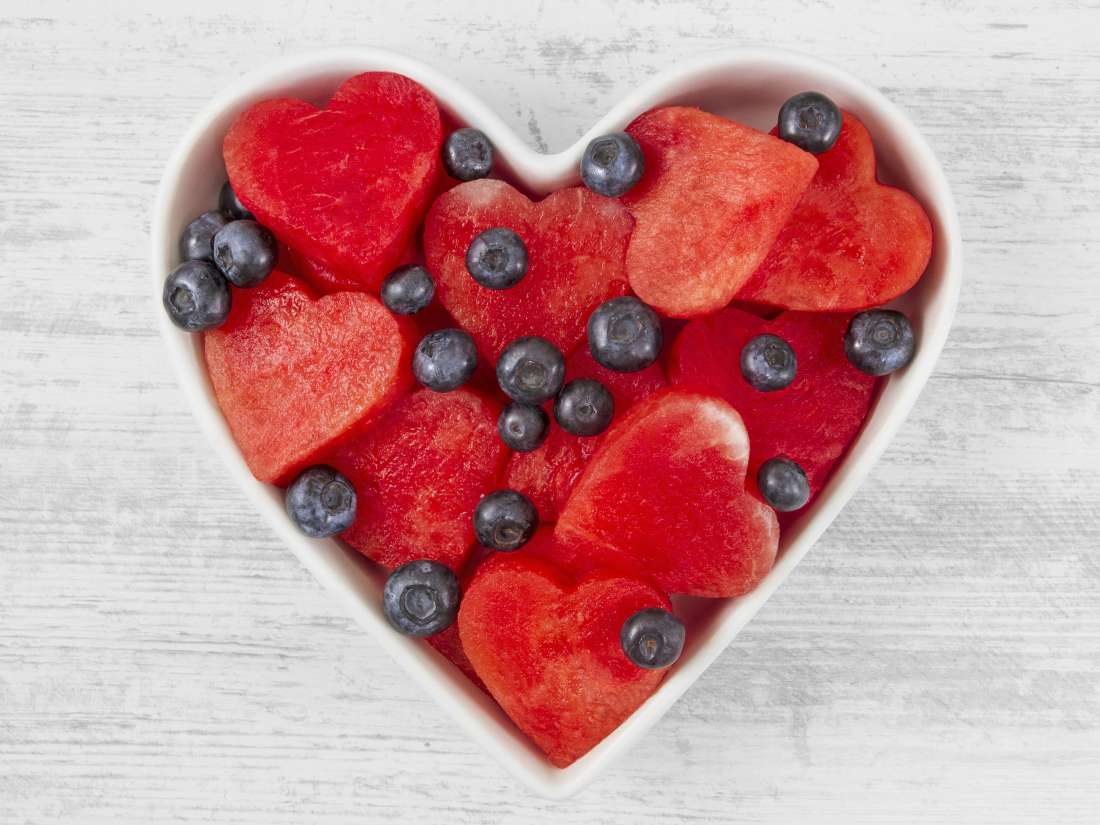By David Railton
Fact checked by Tim Newman
Heart disease is still the number one killer in the United States. In this Spotlight, we outline 16 foods that, when consumed as part of a well-rounded diet, might help to keep your heart healthy.
There are many things you can do to help keep your heart healthy and disease-free.
You can schedule an annual checkup, exercise daily, quit smoking, or take steps to reduce the level of stress in your life.
All of these things can have a positive effect on heart health. But, one of the simplest lifestyle changes that will benefit your heart is watching what you eat.
Nearly 6 million people are currently living with heart failure, and around half of these will die within 5 years of being diagnosed.
The Centers for Disease Control and Prevention (CDC) warn that eating foods high in fat, cholesterol, or sodium can be very bad for the heart. So, when taking steps to minimize the risk of heart disease, diet is a good place to start.
In this article, we examine some of the best foods for ensuring that you keep a robust and healthy heart.
1. Asparagus
Asparagus is a natural source of folate, which helps to prevent an amino acid called homocysteine from building up in the body. High homocysteine levels have been linked with an increased risk of heart-related conditions, such as coronary artery disease and stroke.
2. Beans, peas, chickpeas, and lentils
Beans, peas, chickpeas, and lentils — otherwise known as pulses or legumes — can all significantly reduce levels of low-density lipoprotein (LDL) or "bad cholesterol." They are also packed with fiber, protein, and antioxidant polyphenols, all of which have beneficial effects on the heart and general health.
3. Berries
Berries are also full of antioxidant polyphenols, which help to reduce heart disease risk. Berries are a great source of fiber, folate, iron, calcium, vitamin A, and vitamin C, and they are low in fat.
4. Broccoli
Some studies suggest that regularly eating steamed broccoli can lower cholesterol levels and prevent heart disease.
5. Chia seeds and flaxseeds
These seeds are a rich plant-based source of omega-3 fatty acids, such as alpha-linolenic acid. Omega-3s have many beneficial effects, such as helping to lower levels of triglycerides, LDL, and total cholesterol. They also reduce blood pressure and minimize the buildup of fatty plaques in the arteries.
Omega-3s decrease the risk of disorders that can lead to heart attack, such as thrombosis and arrhythmias.
6. Dark chocolate
Dark chocolate is a rare example of a food that tastes amazing and is good for you (in moderation).
Scientists now believe that dark chocolate has protective benefits against atherosclerosis, which is when plaque builds up inside the arteries, increasing risk of heart attack and stroke.
Dark chocolate seems to prevent two of the mechanisms implicated in atherosclerosis: stiffness of the arteries and white blood cell adhesion, which is when white blood cells stick to the walls of blood vessels.
What is more, studies have found that increasing dark chocolate's flavanol content — which is the compound that makes it tasty and moreish — does not diminish these protective benefits.
7. Coffee
Also in the "almost too good to be true" camp is coffee. One recent study found that regularly drinking coffee was linked with a decreased risk of developing heart failure and stroke.
However, it is important to bear in mind that this study — which used machine learning to assess data from the Framingham Heart Study — can only observe an association between factors, and cannot conclusively identify cause and effect.











